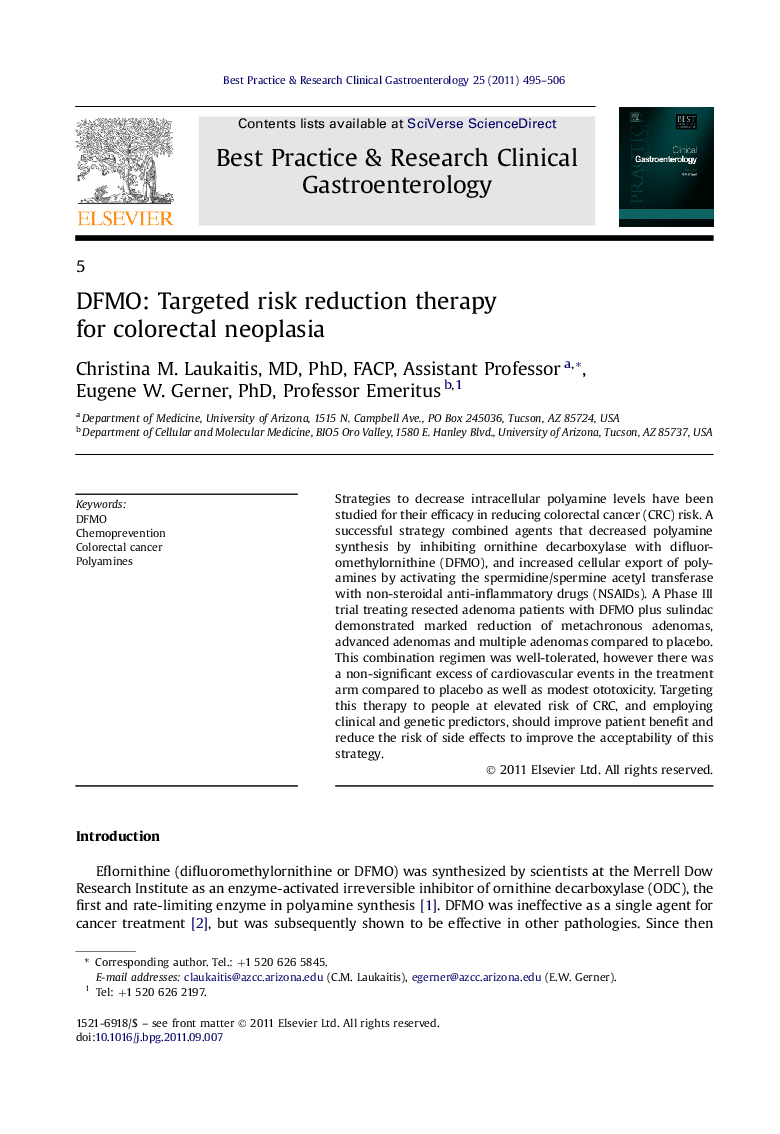| Article ID | Journal | Published Year | Pages | File Type |
|---|---|---|---|---|
| 3254214 | Best Practice & Research Clinical Gastroenterology | 2011 | 12 Pages |
Strategies to decrease intracellular polyamine levels have been studied for their efficacy in reducing colorectal cancer (CRC) risk. A successful strategy combined agents that decreased polyamine synthesis by inhibiting ornithine decarboxylase with difluoromethylornithine (DFMO), and increased cellular export of polyamines by activating the spermidine/spermine acetyl transferase with non-steroidal anti-inflammatory drugs (NSAIDs). A Phase III trial treating resected adenoma patients with DFMO plus sulindac demonstrated marked reduction of metachronous adenomas, advanced adenomas and multiple adenomas compared to placebo. This combination regimen was well-tolerated, however there was a non-significant excess of cardiovascular events in the treatment arm compared to placebo as well as modest ototoxicity. Targeting this therapy to people at elevated risk of CRC, and employing clinical and genetic predictors, should improve patient benefit and reduce the risk of side effects to improve the acceptability of this strategy.
